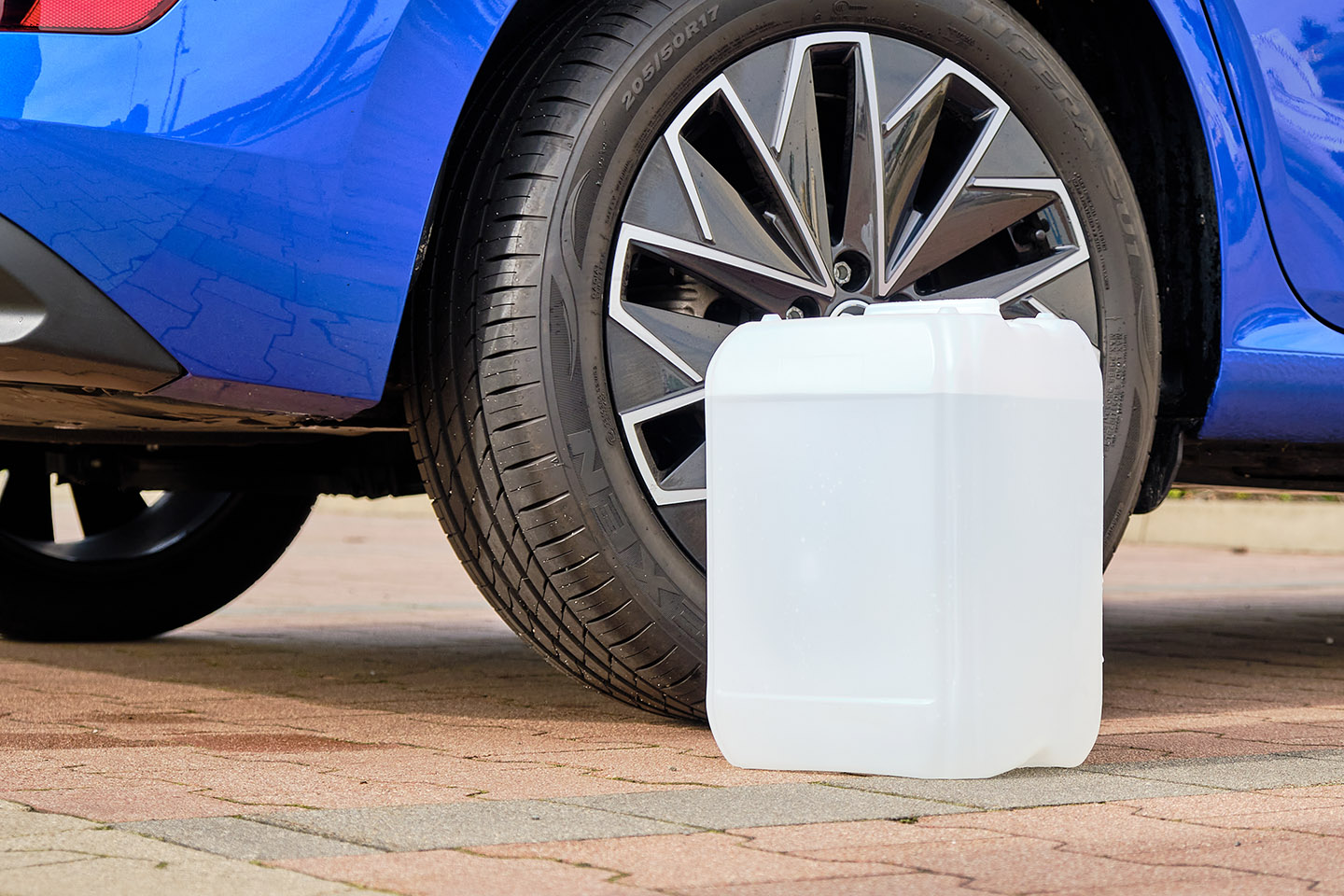What is Diesel Exhaust Fluid and How Does it Work?
Jan 3rd 2022

If you own or use a commercial vehicle with a diesel engine, you need to learn about what’s known as diesel exhaust fluid (DEF), an essential part of your vehicle’s exhaust system. Instead of powering your vehicle, the fluid is designed to dissolve harmful gases and chemicals in the exhaust to improve air quality. You need to add DEF to your vehicle over time to comply with the latest exhaust emissions standards. Learn more about this unique product and what makes it so important.
What is Diesel Exhaust Fluid?
DEF is part of the selective catalytic reduction (SDR) process. SDR is considered the best way to remove toxic gases from the air, including nitrous oxide (NOx), particulate matter (PM) that increases the chances of respiratory and cardiovascular illness, hydrocarbons that contribute to climate change. This technology became the standard in 2010 when regulators required all diesel vehicles to implement SCR.
In order for SCR to be successful, the engine needs a special additive called DEF, which is made up of 32.5% urea and 67.5% de-ionized water. It also goes by the name aqueous urea solution 32% or AUS 32. You can find it at most truck stops and commercial gas stations. The DEF is stored in a separate tank from the diesel fuel.

What Does Diesel Exhaust Fluid Do?
To remove these harmful toxins, the vehicle will inject DEF into the exhaust stream of the vehicle before releasing it into the atmosphere. The DEF turns these chemicals into harmless nitrogen and oxygen, both of which occur naturally in the environment.
If the vehicle runs low on DEF, you should see a light on the dashboard reminding you to fill up the DEF tank. Most modern diesel engines will automatically reduce their speed when there is no DEF in the tank. You may notice a sudden loss in power as the emergency light comes on.
New IPR Valves for Sale Online
How to Use Diesel Exhaust Fluid to Reduce Emissions
Replacing your DEF is easy. The fluid is non-toxic, so you don’t have to worry about breathing in hazardous fumes or chemicals. You’ll need to fill up when prompted by your vehicle. Lots of drivers will even keep a gallon container of DEF on hand in case they run low on the road. Most diesel engines go through around 2.5 gallons of DEF every 800 miles, but you may go through it faster if there are other problems with your engine.
The fluid also won’t freeze in the winter or overheat in the summer, however it’s best to store it at a moderate temperature of 40 to 80 degrees.

Additional Emissions Regulations
DEF isn’t the only way your vehicle reduces exhaust emissions. Most vehicles now come with an exhaust gas recirculation (EGR) system to further reduce the spread of hazardous chemicals. The cooler reduces the temperature of the exhaust gas mixture to limit NOx emissions. The EGR cooler workers in tandem with the SCR process to keep the environment as clean as possible.
The exhaust will also pass through what’s known as a diesel particulate filter (DPF), which removes soot from the exhaust before it gets into the air. You can clean the filter or find replacement diesel particulate filters to comply with the latest regulations.
Your vehicle may also produce more emissions if the engine is running too hot or doesn’t have enough to oil to lubricate essential parts and components. The injection pressure regulator (IPR) valve adjusts the pressure of the oil running through the engine system. The valve may crack or stick over time, leading to additional wear and tear. Find replacement 6.0 IPR valves online to improve engine performance.
Every diesel owner needs to take the right steps to reduce their impact on the environment. Shop for replacement diesel parts online to keep your vehicle running as clean as possible.
